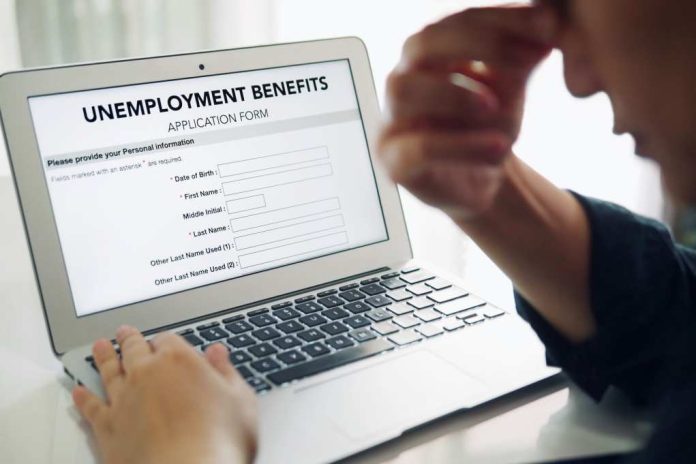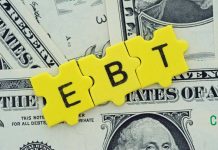
Self-employment is a great way to supercharge your earnings and take your finances into your own hands. When it’s good, it’s really good. But, it can also be quite uncertain. You take the leap into self-employment knowing there’s a chance it may not work out. Is there anything you can fall back on in these times? Can self-employed people get unemployment benefits?
Today, we’re going to take a deep dive into this topic.
The work industry is different from previous years. There is a lot of unemployment, more employment opportunities in newer fields like the tech industry, and there are more people who are self-employed.
As a result, more and more people are wondering – can self-employed people get unemployment benefits, or are they on their own when things don’t work out? The answer may surprise you…so be sure to read all the way through to the end. First, we’re going to help you define whether or not you’re actually a self-employed person.
What Does it Mean to be Self-Employed?
A self-employed individual is not someone who works for a specific employer who pays them consistent pay in the form of a wage or salary. Instead, self-employed people (also known as independent contractors) earn income by contracting with a business or trade directly. Self-employed individuals can expect different setups when it comes to their taxes, and benefits that they can receive. You are self-employed if you are a:
- Contract Worker
- Freelancer
- Driver for a company like Uber or Lyft
- Independent Distributor (Think Mary Kay Beauty)
- A Person Whose Specific Skills Impact Their Income
- A person with a Side Gig (Depends)
- 1099 Recipient
- Airbnb Host (Possibly)
You can review what the IRS considers self-employed on their website if you want to specifically see if your situation would apply!
What are Regular Unemployment Insurance Benefits?
Also referred to as Unemployment Compensation, this is a type of insurance that helps people who have lost their jobs. This insurance can temporarily replace a portion of an individual’s wages while they try to find work. This insurance system has been around for decades. In fact, it was created all the way back in 1935.
Taxes are collected from employers and are then paid into a system on behalf of working people to provide income support if they lose their jobs. Unemployment compensation can help people who have no income at least survive if they are no longer employed. This system can be especially helpful in times of economic stress like the recession of 2008 and the ongoing Coronavirus pandemic.
Unemployment insurance is a state program but it is overseen by the U.S. Department of Labor. The basic program in a majority of states can provide up to 26 weeks of benefits to unemployed workers, and on average replace roughly half of the amount of their prior wages. The states handle the funding and payment of the actual benefits that workers receive while the federal government deals with administrative costs. States need to adhere to some federal guidelines but for the most part, have the ability to set their own benefit levels and qualification requirements.
Can Self-Employed People Get Unemployment Benefits?
So – with all this said, can self-employed people get unemployment benefits?
A perk of being an employee of an employer is the fact there are plenty of benefits. For example, employees can get paid maternity leave, sick days, paid time off, etc. Another benefit is the fact that employers fund unemployment benefits which allows their employees to receive that assistance after they lose their job.
If you are self-employed, you likely haven’t contributed to your state’s unemployment fund. This means that unless there are special circumstances, independent contractors or those who received a 1099 form would not be eligible for unemployment benefits. Thus, the answer is no.
But, that doesn’t mean there aren’t ways to get help during these uncertain times. Think back to what we described as a self-employed person above. There’s a chance you may “technically” be considered an employee depending on your unique state’s legislature. Keep reading to learn more.
Are You Technically Considered Self-Employed?
You could potentially be considered an employee and still be eligible for unemployment benefits. For example, independent contractors that get hired then may be able to be considered employees.
It depends on the state that you are in. Both federal and state laws will determine the eligibility of an individual as an employee. It is important to keep in mind that you may be eligible for unemployment assistance in special circumstances so your state’s unemployment department will be able to help you understand what that means for your specific situation.
What About Disaster Unemployment Assistance?
There may be other forms of unemployment assistance that you could qualify for if you are self-employed. If you find yourself unemployed as a result of a major disaster then you may be able to receive help from disaster unemployment assistance. This is a program that can help workers who have directly felt the impact of an eligible disaster.
Self-Employment Assistance Program
This self-employment assistance program provides the opportunity for early re-employment to dislocated workers. This program can encourage and support unemployed workers to create their own job opportunities by starting their own small businesses.
Recipients of this program will be able to get self-employment assistance allowances every week instead of traditional unemployment insurance benefits. This can help workers establish their businesses and become fully self-employed. Recipients will be able to use this assistance as a form of aid to get their businesses off the ground.
This type of program is voluntary for states to participate in. Which means not every state partakes. To date, Delaware, Mississippi, New Hampshire, New York, and Oregon have active self-employment assistance programs.
However, you should review available opportunities in your state at the time that you are looking for assistance. Programs may expire, or open up to additional states! State assistance changes frequently so in order to ensure the most accurate information you want to get in touch with your state’s unemployment department.
How Does Becoming Self-Employed Impact Unemployment Benefits?
We’ve answered the main question you came here with. Can self-employed people get unemployment benefits? Now, with that said, we want to talk about something many don’t consider – how becoming self-employed impacts your ability to collect unemployment benefits that you’re already taking advantage of. Will you lose your benefits?
Individuals currently receiving unemployment benefits may find that they still want more money. Many people tend to turn to self-employment as a way to make money. However, when you add that additional source of income, you may impact your existing unemployment benefits.
You could potentially disqualify yourself or even limit the amount of unemployment assistance you can receive. You need to review what state laws are. What may be a law in your state may not be applicable in another and vice versa. You can get clarification on what counts as a violation of your unemployment benefits by talking to your state’s unemployment department.
How to Collect Unemployment While Self Employed
You may be curious about how you would be able to collect unemployment assistance if you are eligible to receive it! Luckily, the process of claiming unemployment insurance isn’t as difficult as it may seem.
How to File a Claim for Unemployment Compensation
There are plenty of ways that you can file a claim for unemployment compensation. You may be able to file either online, over the phone, or in person. Every state has its own guidelines on how you can file a claim for unemployment compensation. A good rule of thumb is to have information ready like your:
- Social Security Number
- Alien Registration Card (If you aren’t a U.S. Citizen)
- Driver’s License
- State I.D. Card Number
- Full Mailing Address
- Phone Number
- Previous Employment Information (Over the Past 2 Years)
Once you file your claim it will usually take a few weeks until you receive your benefit funds. These funds can come in either the form of a check, direct deposit, or even a debit card. Each state is different so the waiting period will vary.
When In Doubt About Your Status of Self Employment Being Eligible, Contact an Unemployment Office
The best way to get in contact with an unemployment office is to visit your state unemployment agency website. Think about all of the people struggling with unemployment in your state. That is a lot of people so it can be difficult to reach the office over the phone. That is why many states encourage individuals to handle the filing process online. You may have a hard time trying to get in touch even if you just have a question or want to talk to a representative about your claim.
Even though you can review common questions under the FAQ portion of the site, unemployment claims can be difficult especially if it consists of special circumstances. If you want to try to get in touch with your state’s unemployment department then you should look in the “Contact Us” section of the website.
You can also find contact information for the unemployment insurance department online by using a search engine like Google. You want to look up your state’s name, unemployment office, and phone number. For example, you can use the search engine Google and look up “ Florida unemployment office phone number”. This search should provide you with the information you are looking for!
If English isn’t your first language then you may be in luck. Some states may have different phone numbers depending on the language preferred. For example, California has different unemployment claim telephone lines for English, Spanish, Mandarin, Cantonese, and Vietnamese. If available, additional information on other phone numbers should also be on the “Contact Us” section of your state’s unemployment site.
Can Self-Employed People Get Unemployment Benefits? Wrapping Things Up
There you have it. We hope this answered the question you came here with: can self-employed people get unemployment benefits?
Unemployment insurance benefits can be a great way for people to get support if they lose their employment. However, not everyone will be able to receive these benefits. In fact, those that are self-employed like independent contractors can have a hard time getting this unemployment compensation unless they fall under special circumstances.
The rules for unemployment insurance vary based on the state you are located in. Assistance opportunities are constantly updating, changing, or expiring so you want to make sure you review what up-to-date opportunities are available!
Want to learn more about self-employment? Our blog features resources like where to declare self-employment income on taxes, why are self-employment taxes higher, self-employment wage garnishing, and getting started with self-employment after retirement. We seek to inspire you and provide you with all the information you need to take control of your finances!




























